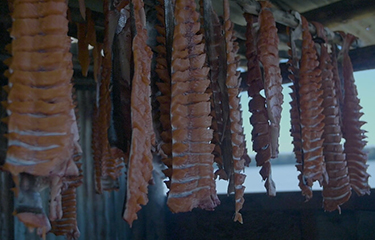An Alaska Superior Court judge threw out a lawsuit alleging that state Department of Fish and Game has mismanaged king and chub salmon on the Yukon and Kuskokwim rivers, in violation of the state constitution requiring sustained yield.
Plaintiff Eric Forrer’s lawsuit did not challenge “any specific inseason management decision or regulation,” according to a statement from the state Department of Law following the 13 April decision by Judge Nathaniel Peters in Bethel.
In his opinion, Peters said the lawsuit was asking the court to “invalidate six decades of policy and admonish an agency based on nothing more than personal observations of one individual and scant, tenuous factual claims.”
State lawyers for the ADFG asked the judge to dismiss the case, arguing there was no evidence the agency had violated the sustained yield clause.
“The State’s inseason management, area management plans, and statewide regulations reflect the Department’s world-renowned science-based fisheries management” ADFG Commissioner Doug Vincent-Lang said in a prepared statement after the decision. “Over the last two years, the Yukon and Kuskokwim fisheries have faced historically low salmon runs and the Department has managed the fisheries to preserve the stocks in the face of this crisis.”
Plaintiff Forrer’s claims, the judge wrote, didn’t have a strong enough link between declines in runs and the ADFG’s actions.
Throughout the complaint, plaintiff fails to articulate any plausible causal connection between the actions of the noard and commissioner and the reduction in salmon runs within the Yukon and Kuskokwim rivers,” the judge wrote.
In his ruling Peters cited the principle of courts deferring to state agencies’ expertise on similar matters.
“To begin, this court will acknowledge we are currently sitting just a few hundred yards from the Kuskokwim river. As such, we are acutely aware of the continuing and troublesome issues connected with salmon runs, fisheries, sustainability, and subsistence in relation to the environment, natural resources, and peoples of this region and state,” wrote Peters.
But decisions by ADFG and the state Board of Fisheries are inherently political questions that should not be decided by the courts, the judge wrote.
“Adherence to the separation of powers and deference to the expertise of a state agency are central tenets of our legal system,” Peters wrote.
Alaska tribal leaders also filed a lawsuit related to poor salmon runs in the Yukon and Kuskokwim rivers on 10 April against the National Marine Fisheries Service. The lawsuit, filed by the Association of Village Council Presidents and Tanana Chiefs Conference and represented by the nonprofit environmental law group Earthjustice, claims the NMFS has used outdated studies in its management of fisheries in the region.
Photo courtesy of Charlie Ess/National Fisherman







